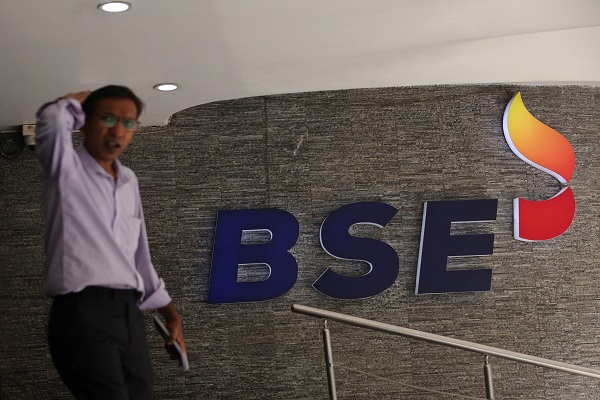SSMD Agrotech coming with IPO to raise Rs 34.09 crore

SSMD Agrotech India
- SSMD Agrotech India is coming out with an initial public offering (IPO) of 28,17,000 equity shares in a price band of Rs 114-121 per equity share.
- The issue will open on November 25, 2025 and will close on November 27, 2025.
- The shares will be listed on SME Platform of BSE.
- The face value of the share is Rs 10 and is priced 11.40 times of its face value on the lower side and 12.10 times on the higher side.
- Book running lead manager to the issue is 3Dimension Capital Services.
- Compliance Officer for the issue is Rajesh Thakur.
Profile of the company
SSMD Agrotech India is operating under the Umbrella Brand name of “House of Manohar”, a rapidly growing player in the market. The company is engaged in the manufacturing, trading, and repacking of a wide array of high-quality agro-food products. SSMD Agrotech operates under four primary sub-brands: Manohar Agro, Super S.S., Delhi Special, Shri Dhanlaxmi.
The company is an ISO 9001:2015 certified organization for Quality Management System, ISO 14001:2015 for Environmental Management System, ISO 22000:2018 for Food Safety Management System, ISO 45001:2018 for Occupational Health and Safety Management System. It consistently sources high-grade raw materials at its manufacturing facilities to maintain rigorous standards and deliver quality products.
Its diverse product portfolio includes a wide variety of food products such as Puffed Rice, Ramdana (Cholai), Gram Flour, Matar Flour, Chana Dal, Idli Rava, Rice Powder, and several by-products of Chana Dal like Chana Chilka, Chana Churi, Chana Khanda, and Chana Sattu. In addition to this, it also engages in the repackaging of popular staples such as Suji, Maida, Dalia, Poha, Roasted Chana, Roasted Heeng Jeera, Roasted Seviyan, Rice, Pulses, and various other essential food items, catering to a wide range of consumer preferences and market segments.
Proceed is being used for:
- Funding of working capital requirement of the company
- Repayment of portion of certain borrowings availed by the company
- Capital expenditure to be incurred by the company for setting up of new D2C dark Store factories
- Capital expenditure to be incurred by the company for purchase of machinery for Namkeen Plant
- General corporate purpose
Industry Overview
Fast-Moving Consumer Goods (FMCG) sector in India expanded due to consumer-driven growth and higher product prices, especially for essential goods. FMCG sector provides employment to around 3 million people accounting for approximately 5% of the total factory employment in India. FMCG sales in the country grew 7-9% by revenues in 2022-23. The key growth drivers for the sector include favourable Government initiatives & policies, a growing rural market and youth population, new branded products, and growth of e-commerce platforms. Resilience needs to be the key factor in the manufacturing process, daily operations, retail and logistic channels, consumer insights and communication that will help FMCG companies to withstand the test of time and create more value for consumers in the long run. India’s FMCG sector grew 7.5% by volumes in the April-June 2023 quarter, the highest in the last eight quarters, led by a revival in rural India and higher growth in modern trade.
Total revenue of FMCG market is expected to grow at a CAGR of 27.9% through 2021-27, reaching nearly $615.87 billion. In 2022, urban segment contributed 65% whereas rural India contributed more than 35% to the overall annual FMCG sales. Good harvest, government spending expected to aid rural demand recovery in FY24. The sector had grown 8.5% in revenues and 2.5% in volumes last fiscal year. In the January-June period of 2022, the sector witnessed value growth of about 8.4% on account of price hikes due to inflationary pressures. In third quarter of FY23, the FMCG sector clocked a value growth of 9.0% YoY -- lower than the 9.2% YoY value growth seen in third quarter of FY22. The FMCG industry in India is expected to grow between 4.5-6.5%, owing to strength in the sector and Indian economy. Indian food processing market size reached $307.2 billion in 2022 and is expected to reach $470 billion by 2028, exhibiting a growth rate (CAGR) of 9.5% during 2023-2028. The Union government approved a new PLI scheme for the food processing sector, with a budget outlay of Rs 109 billion ($1.46 billion). Incentives under the scheme will be disbursed for six years to 2026-27.
Rural consumption has increased, led by a combination of increasing income and higher aspiration levels. There is an increased demand for branded products in rural India. On the other hand, with the share of the unorganised market in the FMCG sector falling, the organised sector growth is expected to rise with an increased level of brand consciousness, augmented by the growth in modern retail. Another major factor propelling the demand for food services in India is the growing youth population, primarily in urban regions. India has a large base of young consumers who form most of the workforce, and due to time constraints, barely get time for cooking. Online portals are expected to play a key role for companies trying to enter the hinterlands. The Internet has contributed in a big way, facilitating a cheaper and more convenient mode to increase a company’s reach. The number of internet users in India is likely to reach 1 billion by 2025. It is estimated that 40% of all FMCG consumption in India will be made online by 2030. E-commerce share of total FMCG sales is expected to increase by 11% by 2030. It is estimated that India will gain $15 billion a year by implementing GST. GST and demonetisation are expected to drive demand, both in the rural and urban areas and economic growth in a structured manner in the long term and improved the performance of companies within the sector.
Pros and strengths
Comprehensive manufacturing network: The company operates three manufacturing facilities along with one dark store factory. This network allows the company to meet product demand, maintain production flexibility, and ensure timely delivery to its customers. The multiple facilities also support the company’s ability to scale operations, manage resources effectively, and maintain consistent product quality across various markets. The manufacturing units are equipped with updated plant and machinery, enabling efficient production processes and adherence to industry standards. This modern infrastructure contributes to enhanced operational efficiency and the ability to adapt to evolving market needs.
Wide range of products and services: One of the company’s key strengths is the diversity in its product range, which is designed to meet the varying needs of its consumers across different industries. Its product issuing includes gram flour, rice, mustard oil, roasted chana, and more. This broad selection allows it to cater to the diverse preferences and requirements of its customers, ensuring that it addresses a wide variety of demands across multiple sectors. By issuing products across multiple categories, it is able to access a range of market segments, which helps in broadening its customer base. This strategic approach enables it to strengthen its presence in various industries, allowing it to effectively respond to the evolving demands of different sectors.
Efficient resource utilization: The company has been engaged in the manufacturing process, where the efficient use of resources plays a crucial role. Through its manufacturing facility, it is able to repurpose by-products as a source of revenue, helping to reduce waste. Through strict quality control and effective management, it ensures that its by-products retain substantial market value, contributing positively to the organization’s overall revenue. In the production of Chana Dal, by-products such as Chana Chilka and Chana Churi are carefully stored, cleaned, and packaged Also, Hari dal being the By-product of the Sortex Process, Chani Kant, being the By-Product of the Grading Process.
Risks and concerns
Risk from reliance on a limited customer base: The contribution of top ten customers of the company towards the Total Sale for period ended September 30, 2025 and the financial years ended March 31, 2025 and March 31, 2024 are 69.91%, 50.97% and 67.92%. Any decline in its quality standards, growing competition and any change in the demand, may adversely affect its ability to retain them. It cannot assure that it shall generate the same quantum of business, or any business at all, and the loss of business from one or more of them may adversely affect its revenues and results of operations. Due to its revenue concentration among a few major clients, any issues with these customers -- such as disputes or disqualification -- could lead to a significant decline in its cash flow and liquidity. Losing key clients or projects from them, for any reason, could materially and adversely affect its business and operational results.
High supplier concentration and raw material dependency risk: The company’s primary raw materials include Chana, Wheat etc. The contribution of top Suppliers to its purchases at for the period ended September 30, 2025 are 76.42% and Financial Year ended March 31, 2025 are 58.79% and Financial Year ended March 31, 2024 are 96.04% respectively. Its business operations are highly dependent on its suppliers and the loss of any of its suppliers may adversely affect its cost of raw material and consequently on its business and results of operations. The company has not entered into long term agreements with its suppliers and the success of its business is accordingly significantly dependent on it maintaining good relationships with its suppliers. If its suppliers are unable to supply it with adequate quantities of materials or if it is unable to procure raw materials from other sources on commercially acceptable term, its business and results of operations could be adversely affected.
Product concentration exposing the company to significant market risks: Although the company offers a wide range of products, it derives a significant portion of its revenue from the sale of a limited variety of products. In particular, Besan constituted approximately 29.93% and 17.56% and Rice approximately 38.93% and 43.20% of its total revenue from operations as of March 31, 2025 and for the period ended September 30, 2025. This concentration heightens its exposure to market and operational risks related to these specific products. Its reliance on a narrow product portfolio also increases the risks associated with competition, regulatory changes, supply chain disruptions, and production challenges. Any of these factors could result in reduced sales, margin compression, or loss of market share, thereby materially and adversely affecting its business, results of operations, financial condition, and cash flows.
Outlook
SSMD Agrotech India is engaged in the manufacturing, trading, and repacking of a wide array of high-quality agro-food products. The company operates under four brands: Manohar Agro, Super S.S., Delhi Special, Shri Dhanlaxmi. The company has wide range of products and services and efficient resource utilization. On the concern side, the company is dependent on and derives a substantial portion of its revenue from a limited number of customers. Cancellation by customers or a delay or reduction in their orders could have material adverse effect on its business, results of operations and financial condition. Moreover, the company’s business is subject to seasonal volatility, which may contribute to fluctuations in its results of operations and financial condition.
The company is coming out with a maiden IPO of 28,17,000 equity shares of Rs 10 each. The issue has been offered in a price band of Rs 114-121 per equity share. The aggregate size of the offer is around Rs 32.11 crore to Rs 34.09 crore based on lower and upper price band respectively. On performance front, revenue from operations for the FY 2024-25 stood at Rs 9917.95 lakh whereas in FY 2023-24 the same stood at Rs 7334.15 lakh representing an increase of 35.23%. Moreover, the company reported restated profit after tax for the financial year 2024-25 at Rs 537.79 lakh in comparison to Rs 110.31 lakh in the financial year 2023-24, representing an increase of 387.50%.
The company’s strategy focuses on aligning with evolving consumer preferences by implementing a Direct-to-Consumer (D2C) model. The company has entered the D2C model by opening its first dark store factory at Neela Padam Kunj, Vaishali, Ghaziabad, U.P. The company is planning to further expand its business by opening more dark store factories at societies. The company’s initiative focuses on delivering fresh and pure essentials, including freshly made products like flour, spices, and oil, as well as other essential items such as pulses and rice, directly to customers. This approach ensures a high level of purity and quality. It aims to provide convenient delivery within 10 minutes, catering to the need for speed in the daily essentials market. This strategy not only enhances convenience for its consumers but also ensures product freshness and quality, fostering stronger customer trust and loyalty. By embracing this approach, it aims to provide superior service, strengthen its market position, and cater to the growing demand for fast, reliable delivery in today’s competitive landscape.























